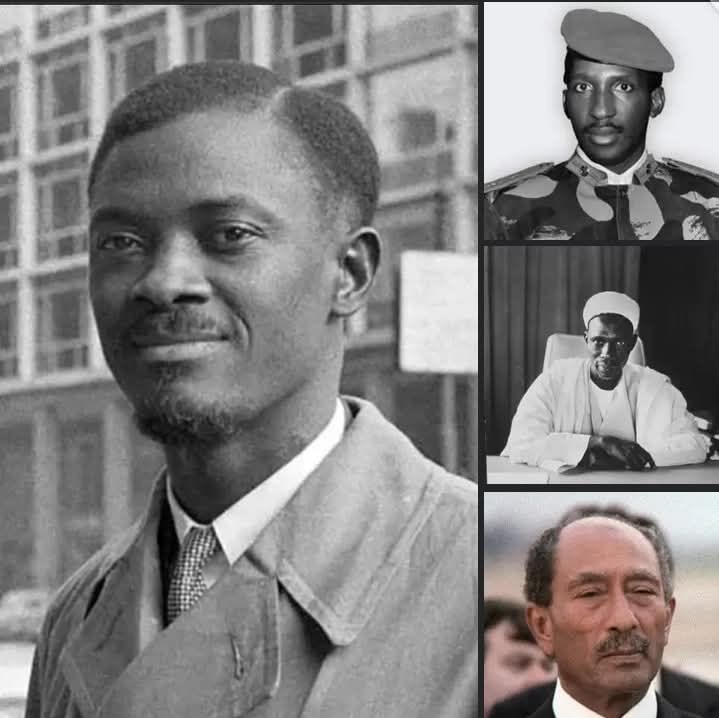8 African Leaders Assassinated While in Power

8 African Leaders Assassinated While in Power
1. Patrice Lumumba (DR Congo, 1961)
Patrice Lumumba became Prime Minister in June 1961 at the age of 34 during the Congo Crisis, marked by military mutinies, secessions in mineral-rich regions like Katanga, and inter-ethnic conflicts. After failing to secure support from the U.S. and UN, he turned to the Soviets, leading to his political downfall. Deposed by Army Chief Joseph Mobutu, Lumumba was executed on January 17, 1961. His remains were reportedly dissolved in acid, leaving no trace.
2. Sir Abubakar Tafawa Balewa (Nigeria, 1966)
Nigeria's first Prime Minister faced challenges from regional tensions and electoral violence. On January 15, 1966, he was abducted during a coup and later found dead near Lagos. His death symbolized the collapse of Nigeria’s First Republic. Balewa was buried in his hometown, Bauchi.
3. Marien Ngouabi (Republic of Congo, 1977)
As the founder of Africa’s first Marxist-Leninist state, Ngouabi ruled through the Congolese Workers' Party. In March 1977, he was assassinated during a political crisis. Conservative Col. Joachim Yhombi-Opango took over as interim leader.
4. Muhammad Anwar al-Sadat (Egypt, 1981)
Known for his charisma and daring leadership, Sadat signed a peace treaty with Israel, angering many in Egypt. On October 6, 1981, he was assassinated during a military parade by soldiers protesting his policies.
5. Samuel Doe (Liberia, 1990)
Doe became Liberia’s first indigenous president in 1980 but faced a brutal civil war. Captured by Prince Y. Johnson in 1990, Doe was tortured and executed. His downfall marked the start of Liberia’s prolonged instability under Charles Taylor.
6. Juvenal Habyarimana and Cyprien Ntaryamira (Rwanda/Burundi, 1994)
The presidents of Rwanda and Burundi died when their plane was shot down near Kigali on April 6, 1994. This incident escalated ethnic tensions, sparking the Rwandan Genocide, which claimed nearly a million lives in four months. The attack remains controversial, with blame attributed to both Hutu extremists and Tutsi forces.
7. Thomas Sankara (Burkina Faso, 1987)
Sankara, a revolutionary leader, transformed Upper Volta into Burkina Faso and pursued ambitious reforms. His policies alienated the middle class and traditional leaders, leading to his assassination in October 1987 by Blaise Compaoré, allegedly backed by France.
8. Laurent Kabila (DR Congo, 2001)
Kabila overthrew Mobutu Sese Seko in 1997 and ruled until his assassination in January 2001. A bodyguard reportedly carried out the killing, with Rwanda alleged to be involved. Kabila’s son, Joseph Kabila, succeeded him days later, maintaining the family’s grip on power.
These assassinations illustrate the volatility of African political history and the challenges faced by leaders in navigating internal and external pressures.
Culled from United Africa Facebook Page

